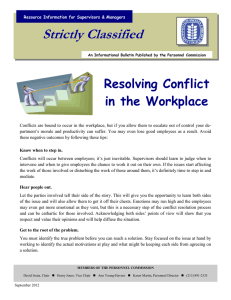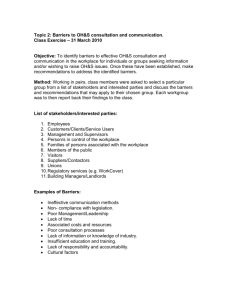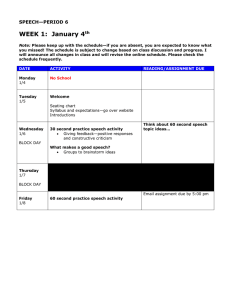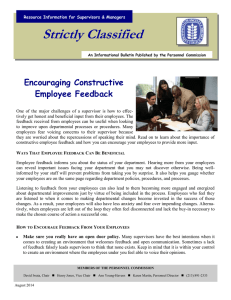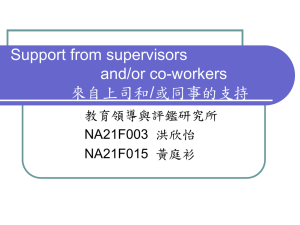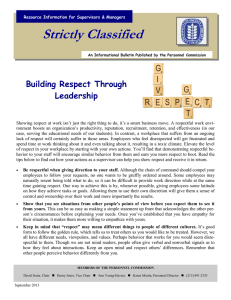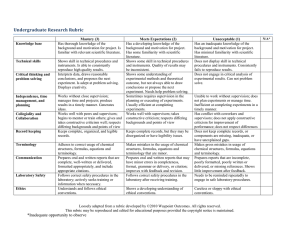Strictly Classified How to Receive Feedback
advertisement
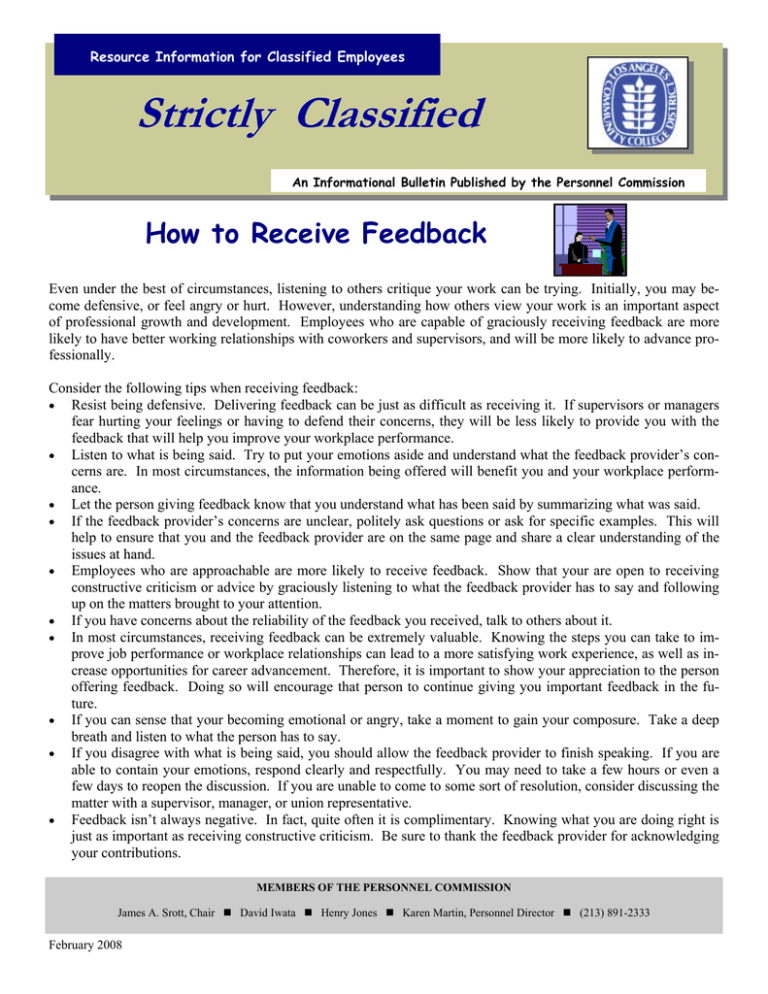
Resource Information for Classified Employees Strictly Classified An Informational Bulletin Published by the Personnel Commission How to Receive Feedback Even under the best of circumstances, listening to others critique your work can be trying. Initially, you may become defensive, or feel angry or hurt. However, understanding how others view your work is an important aspect of professional growth and development. Employees who are capable of graciously receiving feedback are more likely to have better working relationships with coworkers and supervisors, and will be more likely to advance professionally. Consider the following tips when receiving feedback: • Resist being defensive. Delivering feedback can be just as difficult as receiving it. If supervisors or managers fear hurting your feelings or having to defend their concerns, they will be less likely to provide you with the feedback that will help you improve your workplace performance. • Listen to what is being said. Try to put your emotions aside and understand what the feedback provider’s concerns are. In most circumstances, the information being offered will benefit you and your workplace performance. • Let the person giving feedback know that you understand what has been said by summarizing what was said. • If the feedback provider’s concerns are unclear, politely ask questions or ask for specific examples. This will help to ensure that you and the feedback provider are on the same page and share a clear understanding of the issues at hand. • Employees who are approachable are more likely to receive feedback. Show that your are open to receiving constructive criticism or advice by graciously listening to what the feedback provider has to say and following up on the matters brought to your attention. • If you have concerns about the reliability of the feedback you received, talk to others about it. • In most circumstances, receiving feedback can be extremely valuable. Knowing the steps you can take to improve job performance or workplace relationships can lead to a more satisfying work experience, as well as increase opportunities for career advancement. Therefore, it is important to show your appreciation to the person offering feedback. Doing so will encourage that person to continue giving you important feedback in the future. • If you can sense that your becoming emotional or angry, take a moment to gain your composure. Take a deep breath and listen to what the person has to say. • If you disagree with what is being said, you should allow the feedback provider to finish speaking. If you are able to contain your emotions, respond clearly and respectfully. You may need to take a few hours or even a few days to reopen the discussion. If you are unable to come to some sort of resolution, consider discussing the matter with a supervisor, manager, or union representative. • Feedback isn’t always negative. In fact, quite often it is complimentary. Knowing what you are doing right is just as important as receiving constructive criticism. Be sure to thank the feedback provider for acknowledging your contributions. MEMBERS OF THE PERSONNEL COMMISSION James A. Srott, Chair February 2008 David Iwata Henry Jones Karen Martin, Personnel Director (213) 891-2333
